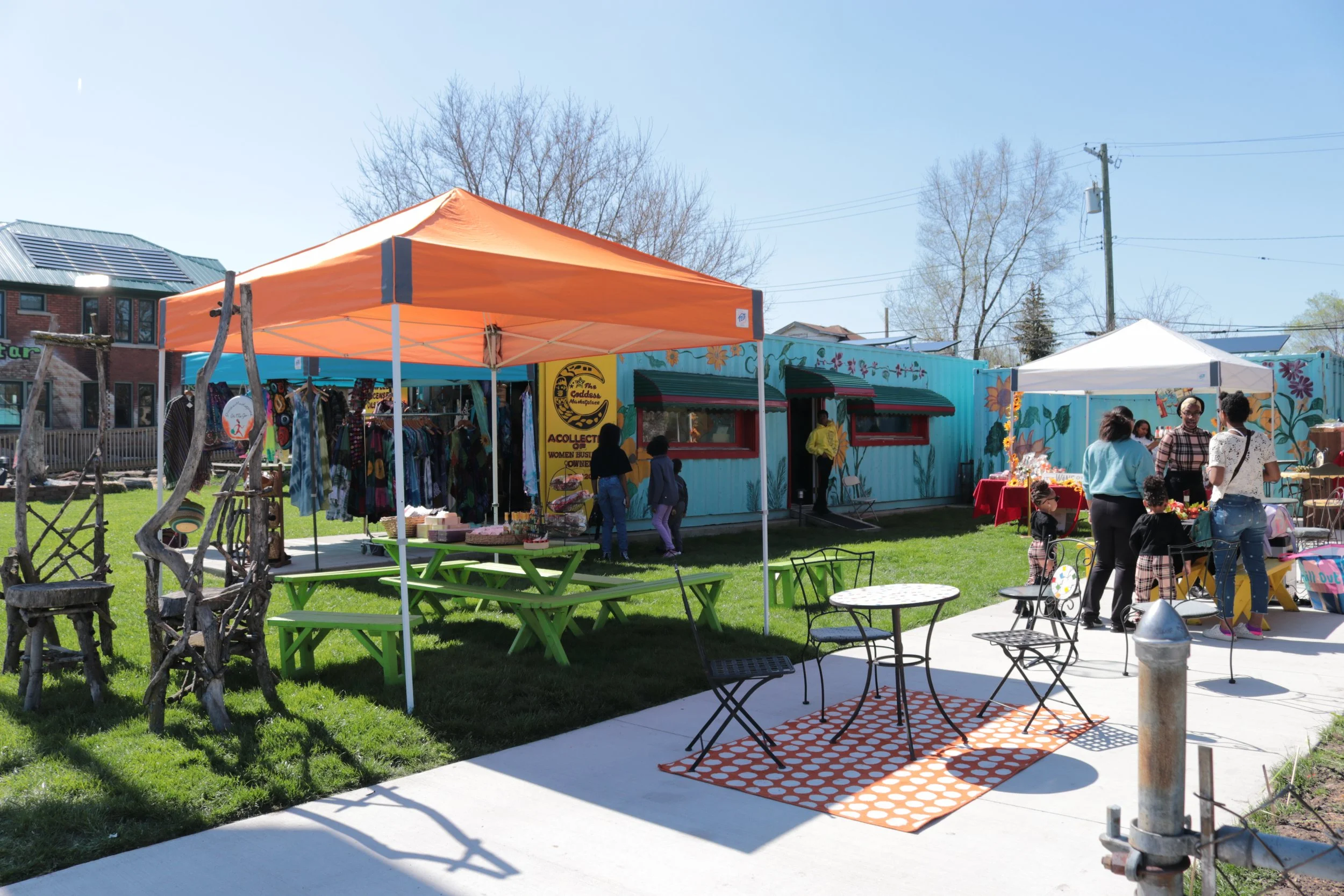The Urgency of Community Self Reliance: Transforming Political Violence
Matt Birkhold
The killing of Charlie Kirk is a symptom of an increase in political violence in the United States. Since January, 520 plots and acts of terrorism have been reported to authorities, a 40 percent increase over the first half of 2024. This trend isn’t likely to get better. However, if we take time to look beyond the surface level causes of political violence, like polarization, social media, cable news, and violent rhetoric, we can see why and how community self-reliance can transform this trend.
The Causes of Political Violence
The white men responsible for committing political violence are reacting to a transformation in the larger economy of patriarchal racial capitalism.
Following the Civil War, as WEB Du Bois pointed out, white Americans demonstrated a preference for poverty over equality with Black people because they were given a “public and psychological wage,” to compensate. White people got access to good public schools, they could live where they wanted, police were lenient with them, and whiteness worked to more or less protect white people from public humiliation and provide hope for a prosperous future.
Whites as a whole are still better off economically than people of color and police are still lenient with whites, but the rest white peoples psychological wage has eroded over the last Xx years. White men have lost the ability to dictate what is socially acceptable to everyone else. Social media means that Karen is no longer protected from public humiliation, all public schools are terrible, inflation is horrible, and over XXX white homes were foreclosed in the 2008 financial crisis. Perhaps most importantly, lack of personal economic gains has led them to no longer believe that they will be upwardly mobile.
For White people without a healthy sense of self, this change in what whiteness means and does can constitute an existential crisis. If this crisis is not solved, it creates the conditions for scared, insecure people to do profoundly destructive things like political violence.
The Healing Power of Community Self-Reliance
Capitalism is an economy in which starvation and homelessness are plausible fears if you don’t have access to money. In such an economy, it’s really hard to develop a sense that who you are matters, and when people don’t believe they matter, they often hurt others. Mechanically, political violence is merely an extreme form that hurting others can take. Gun violence more generally, domestic violence, addiction, alcoholism, homophobia, sexism, and racism are others. The cure for political violence–as well as these other issues–is a system that helps people develop a sense that who they are matters.
Community self-reliance can create one such system. Timebanks show people that their skills are useful to others. Urban agriculture can teach people that they have the power and ability to sustain themselves and exist interdependently with others. Buy nothing groups show people that they can contribute to the lives of others and show them that they don’t have to depend solely on themselves or money for survival. Exchange based health clinics show people that they can receive medical care without money. Repair cafes show people that they can develop new skills and use them in service to others.
What these kinds of community self-reliance projects share is that they connect people to their abilities and skills to grow as a person. When people grow as whole human beings, they become more thoughtful, often developing a greater desire to contribute to the world rather than take from it.
Ultimately, to transform the tide of political violence, we need human beings who refuse to take life from each other. By creating and involving people in community self-reliance projects, we can create containers that will produce such people. If they become connected in place we can create systems that are sustainable and leave behind one that damages us.

